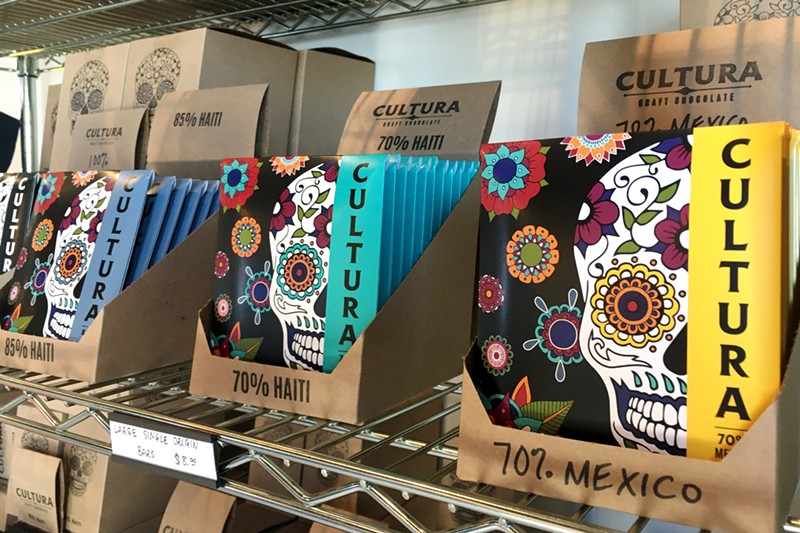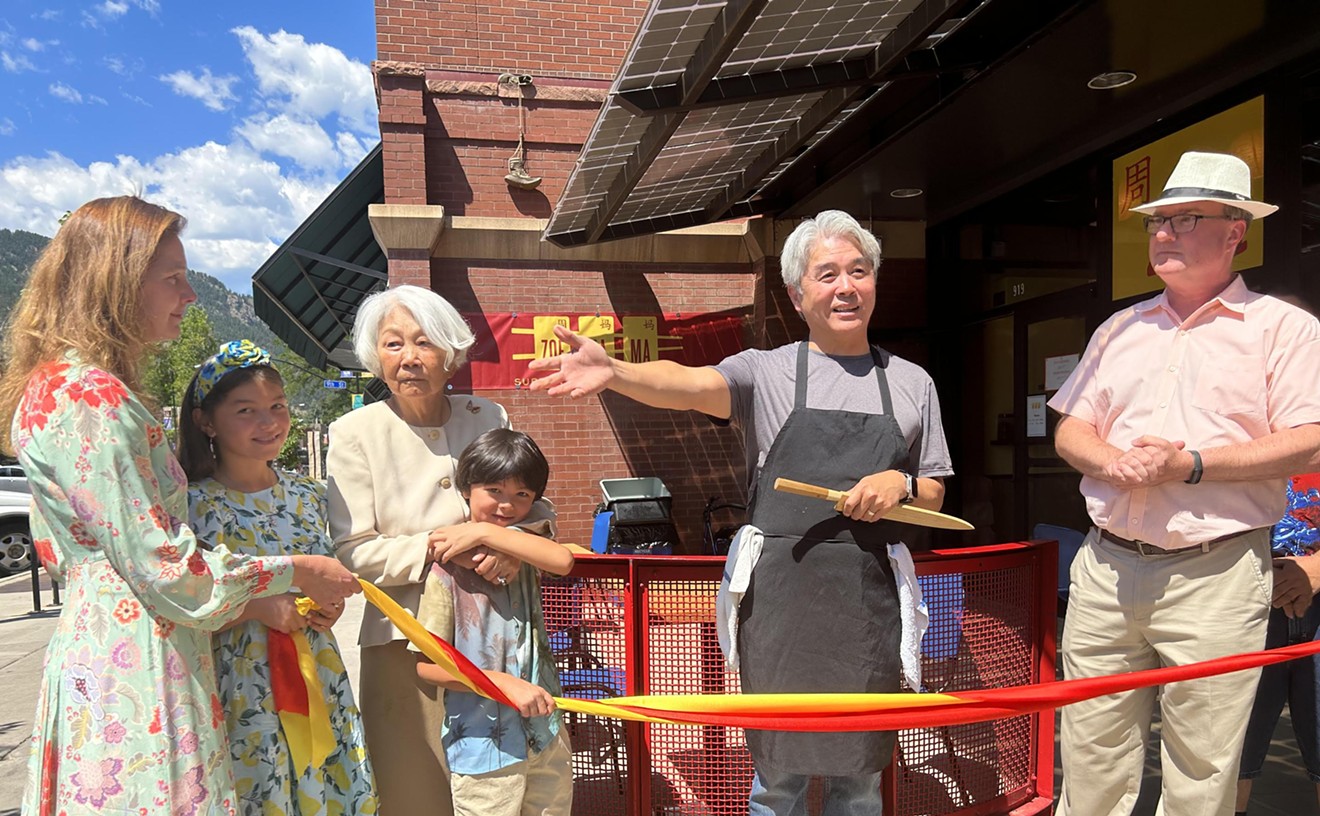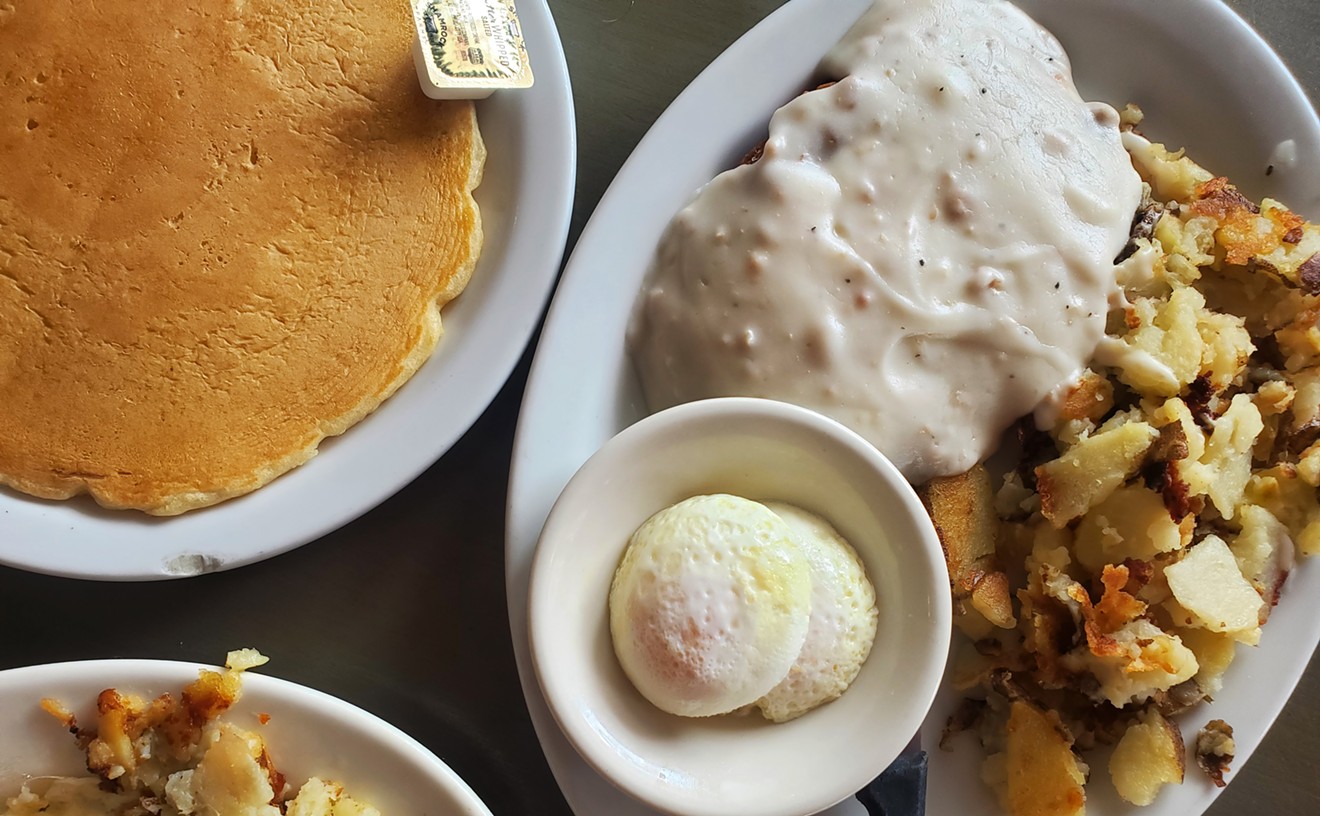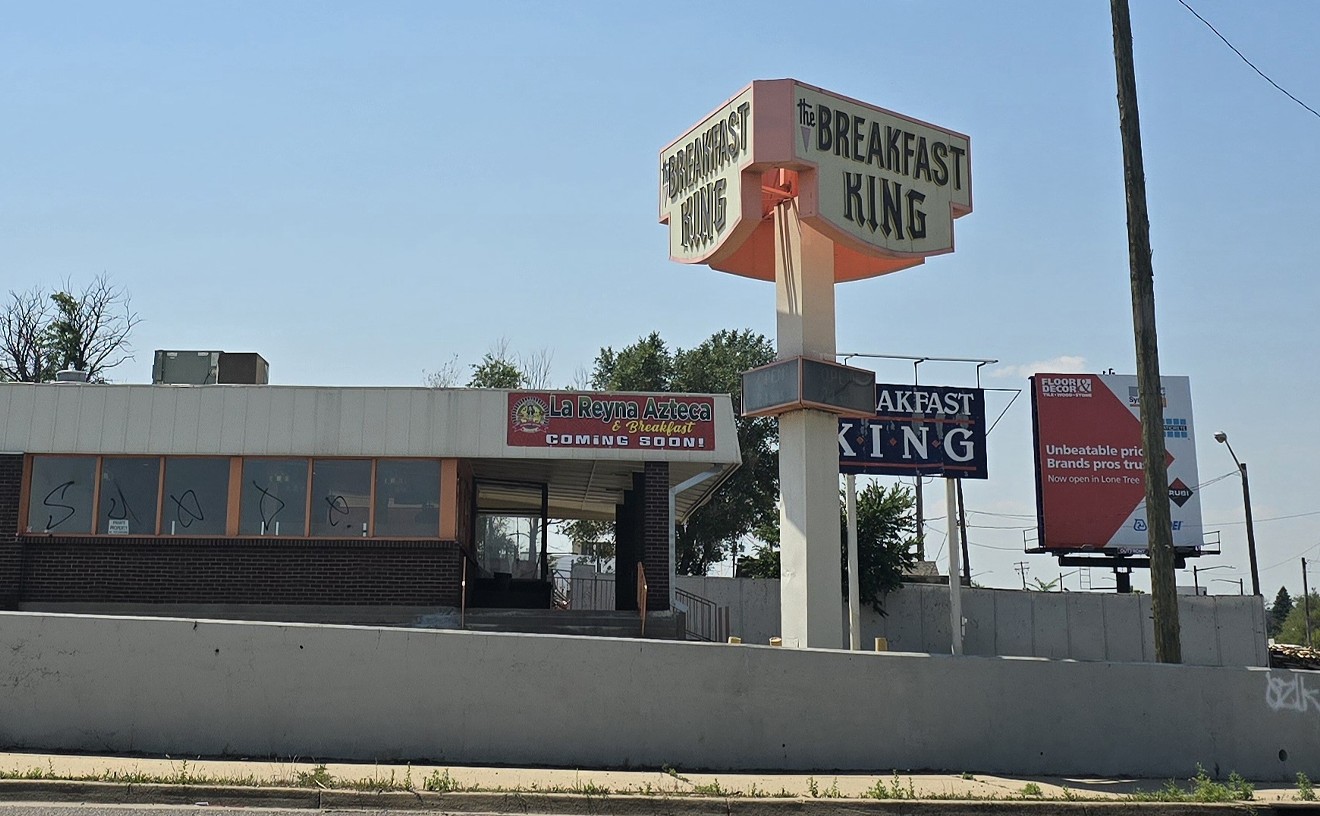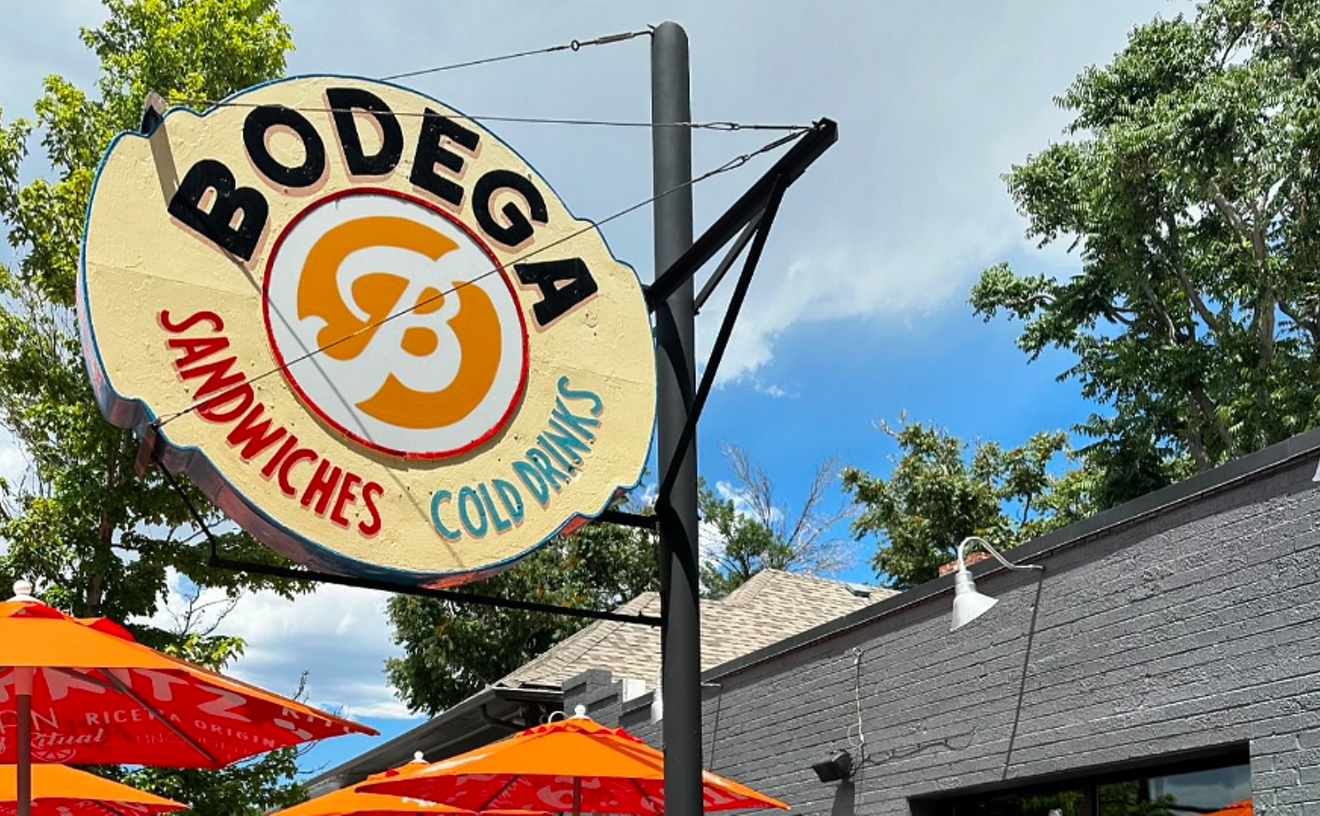The smells at Cultura are earthy, musky, even a little cheesy; they emerge from cacao in various states of production, from raw beans in burlap sacks to pots of liquid chocolate in whirling, humming machines to hot, thick cups of sipping chocolate. This is chocolate for adults, chocolate that captures the wild, fruity, spicy flavors of Mexico, Haiti, Guatemala and other tropical countries, with just the slightest amount of sugar to balance them out.
Cultura owner Damaris Ronkanen remembers Mexican chocolate (much more than she does those cloying Easter bunnies) from her trips to visit her grandparents with her mother, who was born in Mexico. The sipping chocolates in various forms and the savory dishes like mole created her lifelong passion for both cacao and cooking, which only recently became a career.
"I made my first batch of chocolate in 2012," she explains, "and I started doing it full-time three years ago."
Ronkanen's company was born in a commercial kitchen, but the new shop is a production facility, cafe and retail space all in one. So you can see those machines, called melangers, spinning away behind the counter, some of them as big as beer kegs and others small enough to fit beneath a cupboard in the average home kitchen. The counters are lined with glass containers filled with grated chocolate, ready to be made into warm drinks. Delicate confections flavored with herbs, fruits and other ingredients beckon from a display case, and on a shelf on the opposite wall, chocolate bars in various sizes offer an opportunity to experience single-origin flavors.

Sipping choclate from Belize, Mexico and Guatemala each have distinct flavors and colors.
Mark Antonation
Photos of the cacao farms that Ronkanen has visited line the walls of the shop, some depicting split-open pods with the white pulp exposed. In cacao's countries of origin, she explains, some people make aguas frescas or other steeped beverages from the fresh pulp and beans, but fresh cacao is extremely perishable, so the vast bulk of the harvest is immediately processed. The beans are fermented and dried, which changes the flavor from sour and juicy to more of what we're familiar with.
Cultura buys most of its beans from Uncommon Cacao, a wholesaler that works directly with farmers to ensure transparency and fairness in the global trade; Ronkanen buys her Mexican cacao directly from the source in the state of Tabasco. Uncommon Cacao leads origin trips to cacao farms, so Ronkanen has visited most of the places from which her raw materials are sourced.

Cultura owner Damaris Ronkanen prepares sipping chocolates behind a row of her own products.
Mark Antonation
Once the beans arrive, they're roasted and shelled by Ronkanen and her three employees, and then — and this is a simplification of the full process — they're ground into a paste and spun in the melangers, some for days at a time, to reach the proper consistency and smoothness. The process also develops the chocolate's flavor and texture. From there, large blocks of finished chocolate are aged for three or four weeks. The chocolate maker explains that cacao is very acidic when it arrives, so the roasting, grinding, refining and aging mellows the flavor to something pleasing and complex. In fact, the acidity is so high that Ronkanen generally carries out the initial steps of the process before the shop opens, because the smell can be off-putting to customers.
Next time you're craving chocolate, skip the mass-produced stuff diluted over the centuries into something barely akin to its original form. Cultura offers a hand-crafted chocolate experience — raw, powerful and of the earth — as a way to taste the history of ancient cultures and the hard work of farmers and small-batch producers.
The cafe and factoria are now open Tuesday, Wednesday and Thursday from 9 a.m. to 5 p.m., Friday from 9 a.m. to 9 p.m., Saturday from 11 a.m. to 6 p.m., and Sunday from 11 a.m. to 4 p.m. Some weekday evenings will be reserved for classes and tastings, along with special events organized by Re:Vision (the Westwood community organization that owns the building) and Xatrucho and X'tabai Yucateco, the two food vendors that use the commissary kitchen next door for their mobile businesses and pop-ups; for more details, visit culturachocolate.com.
And don't miss the Re:Vision Mole Festival, set for 11 a.m. to 4 p.m. Saturday, February 29, when you can taste mole, some made with Cultura chocolate, created by several local chefs and home cooks.

